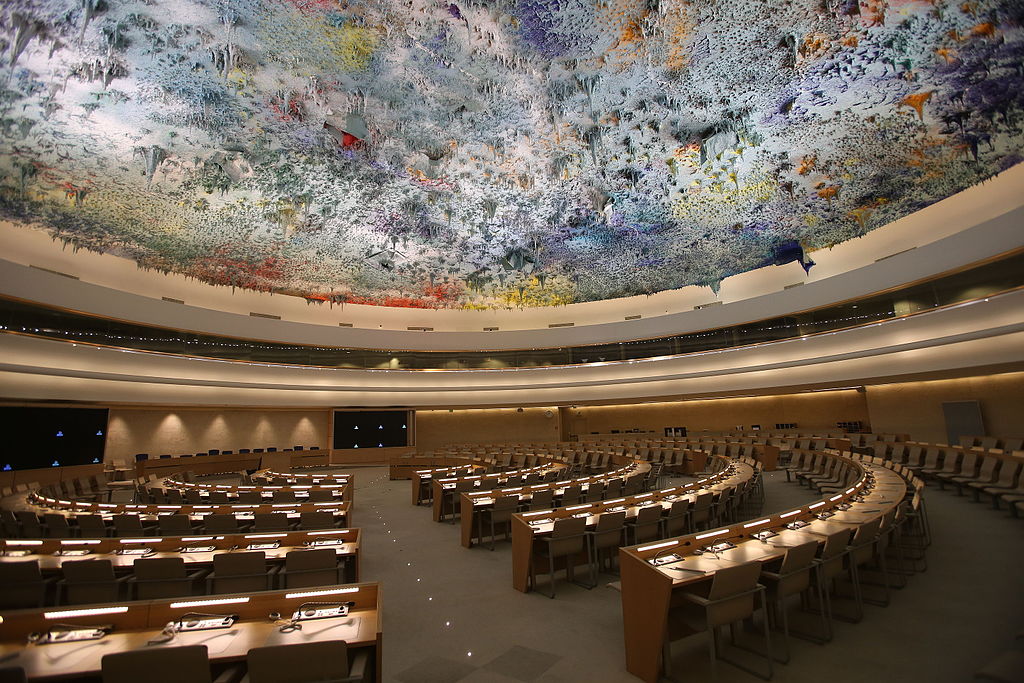
Colombia is aiming to join the United Nations Human Rights Council from 2025 to 2027. Acting Foreign Minister Luis Gilberto Murillo made this announcement during the 55th session of the Council in Geneva. Murillo advocated for the complete removal of nuclear weapons to avoid global chaos.
Colombia reiterated its desire to become a member of the United Nations Human Rights Council and proposed the holding of a third World Conference on Human Rights to give continuity to those held in Tehran (1968) and Vienna (1993).
“Dialogue, social justice and respect for human rights are indispensable to live with dignity,” said the head of Colombian diplomacy. The event was also attended by the Deputy Minister of Multilateral Affairs, Elizabeth Taylor Jay, and the Colombian Ambassador to the United Nations in Geneva, Gustavo Gallon.
Arms control
During the Disarmament Conference, held alongside the 55th Session of the Human Rights Council in Geneva, Murillo urged for immediate and rigorous adherence to the Treaty on the Non-Proliferation of Nuclear Weapons.
She reiterated the importance for the world to have a renewed dialogue as a tool to prevent the world from falling into barbarism and highlighted the role of women, ethnic peoples, peasants and Afro-descendants as agents of change and peace-building in the world.
“Renew our political will and diplomatic determination to establish urgent and truly effective measures for the total elimination of nuclear weapons, be it against their use or against the threat of their use,” he maintained.
The acting foreign minister recalled the proposal for a democratic pact made by Colombia two weeks ago at the Munich Security Conference (Germany), arising from dialogue between the global north and south, as a tool to prevent humanity from falling into barbarism, war and extinction.
“This democratic pact is a warning message on the need to comply with, implement and universalize the instruments of international law on nuclear disarmament, and to revitalize international institutionality and multilateralism, starting with this disarmament conference,” he said.
Finally, he reiterated that as long as there is no peace with nature, it will not be possible to move forward, so he said that during the COP16, to be held in October this year in Cali, they will seek to “consolidate a new global pact in which the conservation of nature and nature-based solutions illuminate the path to a more prosperous, just and harmonious world. We invite you to build this path together in Colombia”.
Two international conferences
The United Nations Human Rights Conferences held in Tehran in 1968 and Vienna in 1993 marked important steps in the promotion and protection of fundamental rights at the international level. In Tehran, they focused on the Universal Declaration of Human Rights, stressing the importance of equality, freedom and justice for all individuals, regardless of ethnicity, religion or gender. The need to eradicate discrimination and promote international cooperation in the field of human rights was also stressed.
The Vienna Conference in 1993 played a pivotal role in shaping the global human rights agenda. It established the Office of the United Nations High Commissioner for Human Rights and reinforced the core principles that human rights are universal, indivisible, and interdependent. The conference emphasized the need for countries to work together through dialogue and cooperation to safeguard and advance human rights. This gathering set the stage for a worldwide strategy to protect human rights into the 20th century and beyond, marking a crucial step in the international community’s efforts to address human rights issues.
After more than 30 years, and following the stages established at these two historic events, Colombia has now called for a third international conference to build on the achievements of the previous two.
Commitment to human rights
Over the past decades, Colombia has gone through a turbulent path in terms of human rights. The South American country has witnessed internal armed conflicts, political confrontations and systematic violations of its citizens’ fundamental rights. From the emergence of guerrilla groups to the fight against drug trafficking, the Colombian population has faced a series of threats that have affected its security and well-being.
Despite efforts by the government and civil society, human rights violations persist in various forms. The assassination of social leaders, forced displacement and disappearances continue to be urgent problems that require priority attention. While significant progress has been made, such as the signing of peace agreements with rebel groups, the effective implementation of these agreements remains complex.
Corruption and lack of punishment have made it difficult for victims of abuse to get justice. Since taking office in August 2022, President Gustavo Petro’s administration has promised to support these basic rights and values. This task is challenging in Colombia, a nation looking to move past its history of conflict and violence and eager to fulfill its international obligations in this regard.
See all the latest news from Colombia and the world at ColombiaOne.com. Contact our newsroom to report an update or send your story, photos and videos. Follow Colombia One on Google News, Facebook, Instagram, and subscribe here to our newsletter.

